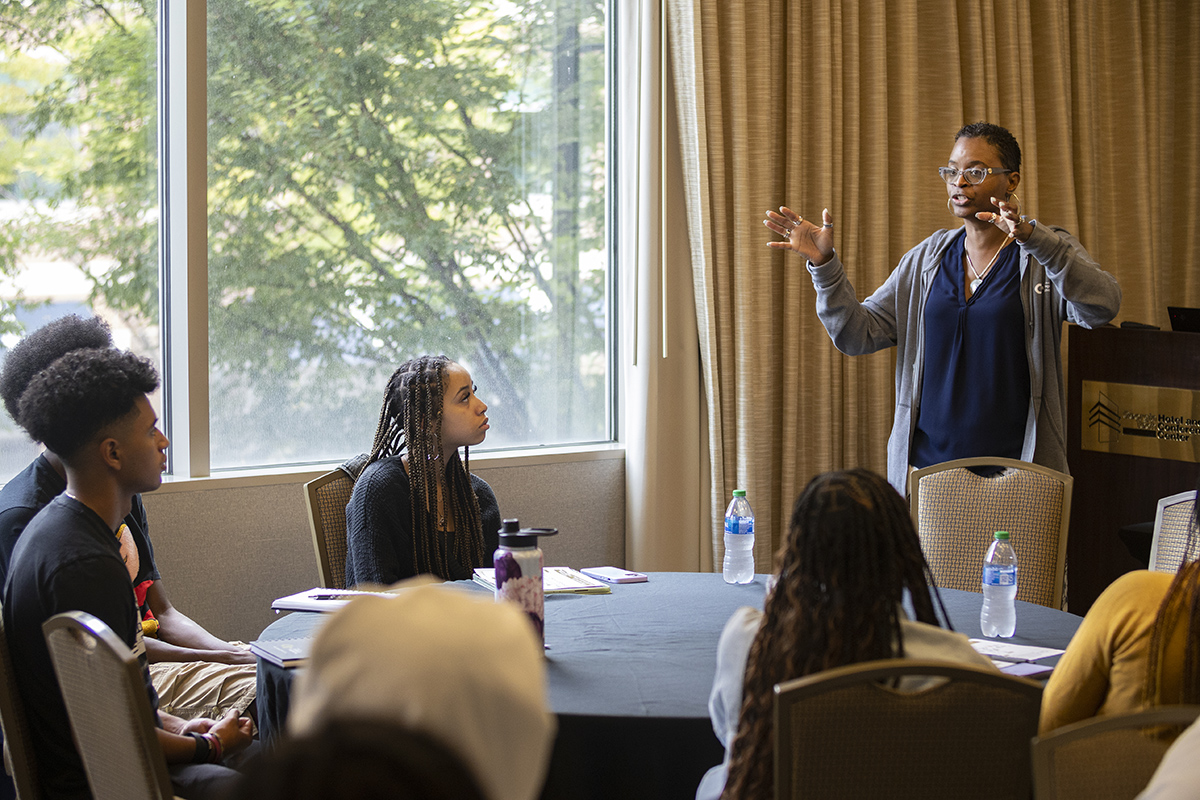
Collaboration between Georgia Tech, Spelman, and Albany State will track 45 women through their college careers
Roughly a third of Black women pursuing degrees in science, technology, engineering, and math fields don’t finish those programs. Some change disciplines, as others leave college altogether. But the reasons aren’t well-documented, which means it’s hard to know how to help Black women persevere and earn their degrees.
With a $4.2 million grant from the National Science Foundation, researchers from Georgia Tech, Spelman College, and Albany State University will begin to look for causes and solutions. They’ll recruit 45 women for a five-year study to investigate the relationship between systems of oppression and Black women’s intent to persist in STEM studies.
“We’re positing that the lack of progression is based upon continual and progressively more damaging interruptions,” said Tamara Pearson, director of the Center of Excellence for Minority Women in STEM at Spelman College. “Although interruptions are daily occurrences in the lives of all people, Black women are interrupted more frequently than others as a matter of their sheer existence. Each occurrence results in losses of focus, momentum, and confidence, and requires time to rebound. I'm excited for what this work will mean for Black women in STEM.”
Pearson will co-lead the initiative with Felicia Benton-Johnson at Georgia Tech, Kathaleena Edward Monds at Albany State, and PLR Consulting’s Pamela Leggett-Robinson — all Black women who pursued STEM education.